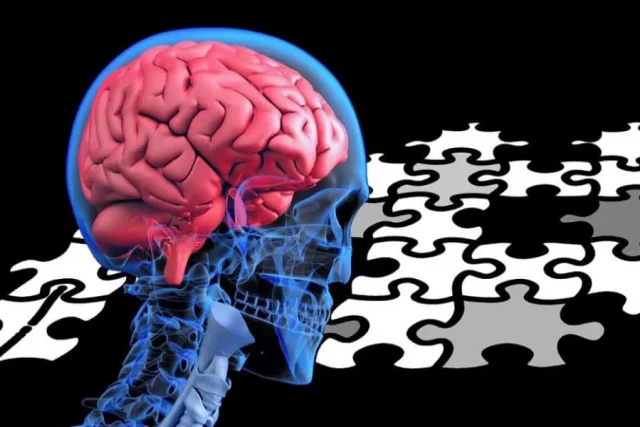It can be difficult for seniors to deal with mental health problems. They may feel like they are too old for therapy or medication, or that their problems are not serious enough to warrant treatment. However, it is important for seniors to seek help if they are experiencing mental health issues. This article will discuss some practical tips for seniors on how to treat their mental health problems.
Attend Crisis Stabilization
Professional help is more than necessary when it comes to mental health, especially in your old age. Luckily for you, their facilities offer a stay in a home-like environment along with a program specifically designed to meet your needs. This is called crisis stabilization and can last for multiple weeks. Here, you will receive around-the-clock care and attention from a team of mental health professionals who will help get your life back on track.
Having intensive mental health care for a short period of time can make all the difference in your recovery. Crisis stabilization is one of the most effective ways to treat mental health problems, especially for seniors.
Go To Therapy
Attending psychotherapy sessions as a senior can help you address any mental health problems that you may be experiencing. Seeing a therapist can provide you with the support and guidance that you need to manage your mental health. In therapy, you will learn coping mechanisms and healthy ways to deal with stressors in your life. You will also have the opportunity to talk about any issues that are causing you distress.
For example, if you are experiencing anxiety, going to therapy can help you learn how to control your anxiety symptoms. If you are struggling with depression, therapy can help you understand your condition and develop a treatment plan. If you have any other mental health problems, going to therapy can also be beneficial.
Therapists specializing in elder care can provide you with the specific help that you need. If you are interested in going to therapy, talk to your doctor about referrals. You can also search for therapists in your area who specialize in senior care.
Be Active
Even in your old age, you should never stop being active. Here are some low-impact exercises you can do as a senior:
- Walking
- Swimming
- Tai chi
- Yoga
- Pilates
- Light weightlifting
Being active has many benefits for your mental health. It can help reduce stress, improve your mood, and increase your energy levels. Exercise also helps to improve your sleep quality. All of these things can help to reduce the symptoms of mental health problems such as anxiety and depression.
Stay In Touch With Family
It’s essential to never lose contact with your family, especially as you get older. This can help reduce the chance of developing mental health problems. Studies have found that seniors who had little contact with their families were more likely to experience depression, anxiety, and other mental health issues.
Spend time with your children and grandkids, call or visit your parents and siblings, go on family vacations, and host get-togethers. You’ll not only reduce your risk of mental health problems but also create memories that will last a lifetime.
If you live far apart, invite them to come to visit or set up regular video chats. If you’re not close with your family, try to build relationships with other relatives or close friends.
Hang Out With Friends
Staying social in your later years is important for your mental well-being. Call up your friends often to see how they’re doing and whether they’d like to grab a cup of coffee. If you live close by, schedule weekly walks or movie nights.
Even if you don’t have many friends, there are plenty of ways to meet new people and make connections. Look into joining a book club, knitting group, or any activity that interests you. Doing things with other people is a great way to stave off loneliness and keep your mind active.
Get A Pet
A pet can be great for emotional support and practical help. Dogs can provide company and assistance with things like getting up and walking, getting the mail, and providing a sense of security. Cats can provide companionship and emotional support as well. Other pets can also offer these benefits depending on the individual animal’s personality.
If you’re considering getting a pet, do your research to find an animal that would be a compatible fit for your lifestyle and personality. Also, make sure you are prepared to handle the responsibilities that come with pet ownership such as feeding, walking, grooming, exercising, and vet care.
Find A Low-impact Hobby
Having a hobby is a great way to spend your day without feeling that you hadn’t done anything worthwhile. It can also be a great way to meet people and make friends, which is important for your mental health. If you’re not sure what hobby to pick up, consider finding something low-impact that won’t require too much of your time or energy.
For example, fishing is a great low-impact hobby that can be done alone or with friends. It’s also a great way to relax and get some fresh air. gardening is another low-impact hobby that can have a therapeutic effect. If you don’t have much space, consider growing plants in pots on your balcony or patio.
Practice Mindfulness
There are also great mindfulness exercises for elders you can do every single day. One example is practicing mindful eating, which can help you be more present and aware of what you’re putting into your body.
To do this, eat one meal a day slowly and without distractions like TV or your phone. Pay attention to the colors, smells, and textures of your food. Notice how your body feels as you eat, and see how your hunger changes throughout the meal.
You could also meditate or do some gentle stretching first thing in the morning, or try a guided meditation exercise before bed. Taking just a few minutes out of your day to focus on your breath and body can help ease anxiety and promote better sleep.
Elders need to take care of their mental health just like everyone else, or even more intensively. That’s why crisis stabilization might be a great option, but psychotherapy should also never be ignored. Make sure to stay active and converse with family and friends daily. Get a pet to keep you company and try finding a low-impact hobby. Finally, make sure to take some time out of your day for some mindfulness exercises!














